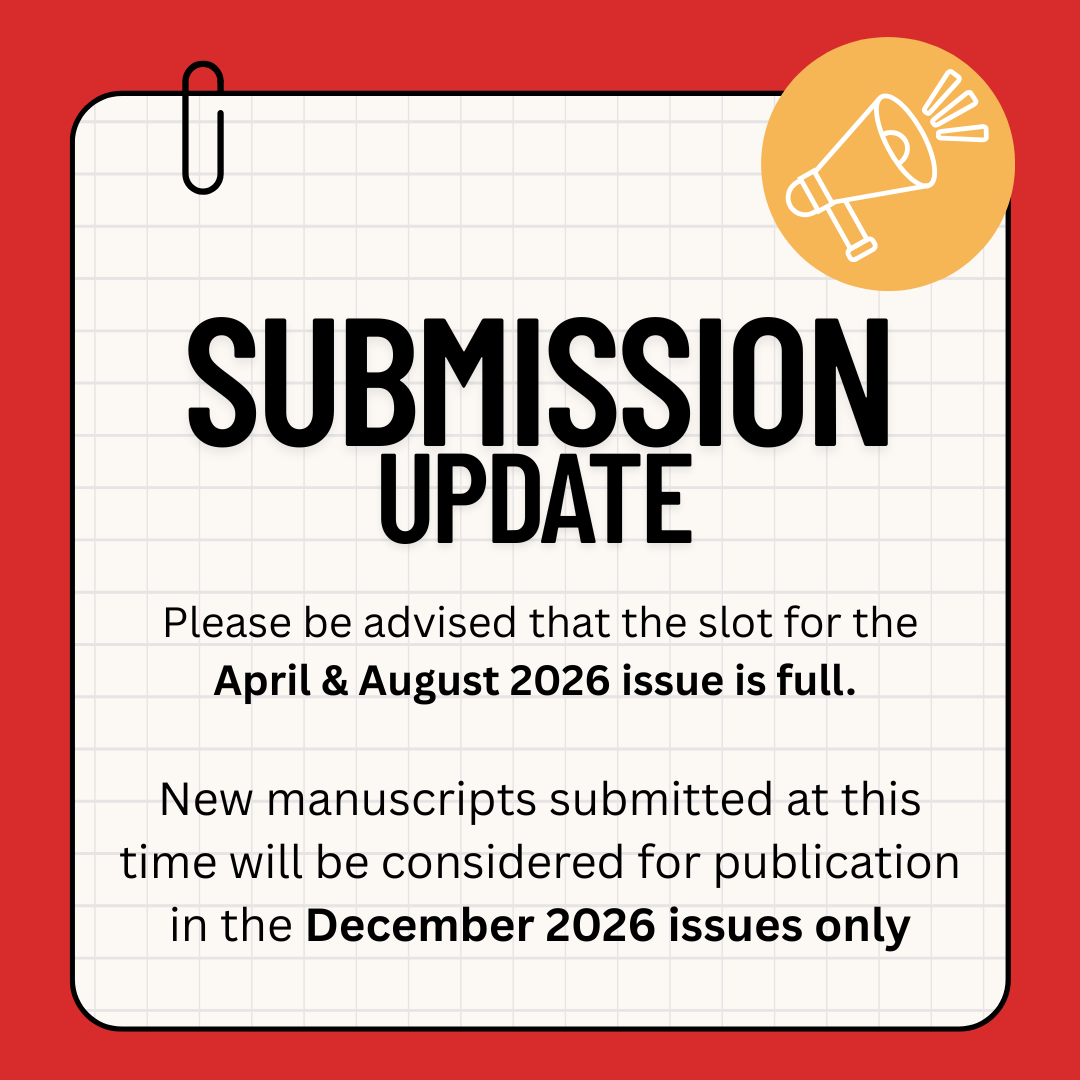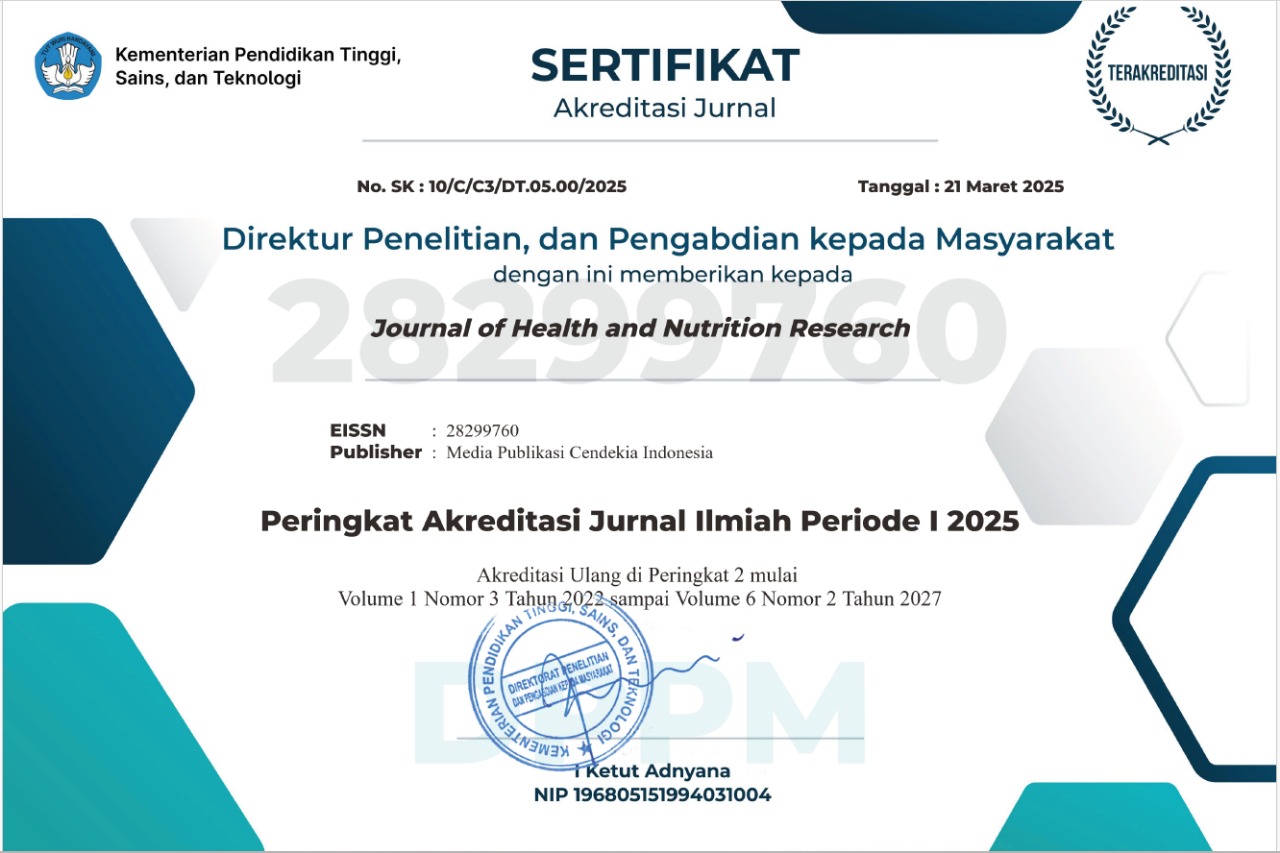Prevention Behavior of The Covid-19 Protocol In Palu Barat District; Thought and Feeling Theory
Keywords:
Behavior, Prevention, Covid-19Abstract
Entering the third year, the trend of COVID-19 cases has again increased. Sourced from the WHO page, the total confirmed positive for COVID-19 in Indonesia until November was 6,582,291 cases (WHO, 2022). The purpose of this study was to see an overview of thoughts and feelings, personal references, human resources, and the culture of Palu City regarding implementing the COVID-19 protocol. The research method used a qualitative type with the technique of determining the informant was Purposive Sampling with the criteria such as age 18-40 years, domiciled in the West Palu District area, and willingness to become an informant. The number of informants was 23 regular informants, 1 key informant, and 1 additional informant. Data validation used source triangulation, and analysis used content analysis. The study showed that thoughts and feelings play a major role in COVID-19 prevention behavior; when cases soar high, the protocol was carried out as recommended, but when entering the new normal, it seems that it has begun to experience relaxation. Even though cases have increased, the COVID-19 protocol has not been appropriately implemented. Personal references, such as the role of the task force chairperson, community leaders, and youth leaders, provide examples and motivation to the community. Resources in the form of the role of health workers and adequate facilities at a time when cases are increasing but slowly decreasing, and even handwashing facilities were no longer found at this time. The specific culture was not seen in this study
Downloads
References
WHO. Indonesia: WHO Coronavirus Disease (COVID-19) Dashboard With Vaccination Data [Internet]. 2022 [cited 2022 Dec 5]. Available from: https://covid19.who.int
Tegu IVSP, Wungouw HPL, Sagita S, Dedy MAE. Hubungan Pengetahuan Dan Sikap Terhadap Perilaku Pencegahan Covid-19 Pada Mahasiswa Fakultas Kedokteran Universitas Nusa Cendana. Cendana Medical Journal (CMJ). 2022 May 1;10(1):105–12.
Widayanti LP. Pengaruh Pengetahuan Terhadap Perilaku Penerapan Protokol Kesehatan Saat Pandemi Covid-19 Pada Remaja. Surya : Jurnal Media Komunikasi Ilmu Kesehatan. 2021 Sep 1;13(2):173–8.
Sari RK. Identifikasi Penyebab Ketidakpatuhan Warga Terhadap Penerapan Protokol Kesehatan 3M Di Masa Pandemi Covid-19 (Studi Kasus Pelanggar Protokol Kesehatan 3m Di Ciracas Jakarta Timur). Jurnal Akrab Juara. 2021 Feb 5;6(1):84–94.
Fakih M, Oktaviana S, Nurlaili E, Febrianto D, Nargis N. The Implementation Of Health Protocols On E-Court Systems During The Covid-19 Pandemic Era (In Bandar Lampung City). Cepalo. 2022;6(1):23–36.
Sugiono. Metode Penelitian Kombinasi (Mix Methods). Bandung: Alfabeta; 2015.
Haerana BsT, Ansyar DI, Sadarang RAI, Karini TA, Adnan Y, Arranury Z. Compliance of the COVID-19 prevention protocols on daily activities among adolescents in the period of early adapting new habits, South Sulawesi Province, Indonesia. Gaceta Sanitaria. 2021 Jan 1;35:S463–7.
Atmojo JT, Iswahyuni S, Rejo R, Setyorini C, Puspitasary K, Ernawati H, et al. Penggunaan Masker Dalam Pencegahan Dan Penanganan Covid-19: Rasionalitas, Efektivitas, Dan Isu Terkini. Avicenna : Journal of Health Research. 2020 Oct 31;3(2):84–95.
Wijesinghe MSD, Ariyaratne VS, Gunawardana BMI, Rajapaksha RMNU, Weerasinghe WMPC, Gomez P, et al. Role of Religious Leaders in COVID-19 Prevention: A Community-Level Prevention Model in Sri Lanka. J Relig Health. 2022;61(1):687–702.
Thoyib M, Widodo W, Rohati R, Mulyadi E, Sutarman S. The relationship of community leaders and social cultural environment with community participation in management of COVID-19 in Tangerang City. Linguistics and Culture Review. 2021 Sep 25;5(S1):1009–19.
Rosidin U, Rahayuwati L, Herawati E. Perilaku dan Peran Tokoh Masyarakat dalam Pencegahan dan Penanggulangan Pandemi Covid -19 di Desa Jayaraga, Kabupaten Garut. Umbara. 2020 Jul 30;5(1):42–50.
Fadjriah RN, Rau MJ, Syam S. Community Knowledge and Attitudes about the Health Protocols Implementation during the COVID-19 Pandemic in North Birobuli Village. 2022;1(2):64–75.
Adriani A, Oktavia S, Febrina W. Efektivitas Pendidikan Kesehatan Terhadap Perilaku Cuci Tangan Pakai Sabun Dalam Upaya Pencegahan Covid-19. REAL in Nursing Journal. 2021 Aug 26;4(2):77–88.
Yanti B, Wahiduddin, Da’at Arina YM, Nawan, Mulyadi E, Novika RGH, et al. Community Knowledge, Attitudes, And Behavior Towards Social Distancing Policy As Prevention Transmission of Covid-19 In Indonesia. Indonesian Journal of Health Administration. 2020 Jul 7;8:4–14.
Babiker A, El Husseini M, Al Nemri A, Al Frayh A, Al Juryyan N, Faki MO, et al. Health care professional development: Working as a team to improve patient care. Sudan J Paediatr. 2014;14(2):9–16.
Rosidin U, Rahayuwati L, Yamin A, Shalahuddin I, Sumarni N. Community Leaders Support in Implementing Healthy Behaviours during the COVID-19 Pandemic: A Qualitative Case Study. Malaysian Journal of Medicine and Health Sciences. 2022;18(Supp3):147–51.
Pascawati NA, Satoto TB, Alamri A. Role of Community Leaders in Managing Covid-19 Pandemic in Indonesia. ASEAN Journal of Community Engagement. 2022 Jul 31;6(1):126–51.
Notoatmodjo. Promosi Kesehatan dan Ilmu Perilaku. Jakarta: Rineka Cipta; 2007.
Published
How to Cite
Issue
Section
Copyright (c) 2022 Rasyika Nurul Fadjriah, Shendy Krisnasari

This work is licensed under a Creative Commons Attribution-NonCommercial-ShareAlike 4.0 International License.
Most read articles by the same author(s)
- Muhammad Ryman Napirah, Vidyanto Vidyanto, Heru Kukuh Prayitno, Hasanah Hasanah, Nur Mila Sari, Rasyika Nurul Fadjriah, The Relationship Between Situational Leadership Style and Motivation with Employee Performance at Kamonji Community Health Center in West Palu District, Palu City , Journal of Health and Nutrition Research: Vol. 3 No. 3 (2024)
- Arwan Arwan, Sadli Syam, Rasyika Nurul Fadjriah, Sulfiyanti Sulfiyanti, Muhammad Ryman Napirah, Community-Based Intervention: A Case Study of Pantoloan Boya Village Community Through the Rehabilitation Field Program of National Narcotics Agency, Palu City , Journal of Health and Nutrition Research: Vol. 2 No. 2 (2023)
- Muhammad Ryman Napirah, Vidyanto Vidyanto, Rasyika Nurul Fadjriah, Nisa Rohimah, Evaluation of Pregnant Class Implementation in Work Area of Community Health Center , Journal of Health and Nutrition Research: Vol. 3 No. 1 (2024)
- Firmansyah Firmansyah, Rahma Rahma, Rasyika Nurul Fadjriah, Lusia Salmawati, Management Behavior Of Rabies-Transmitting Animal (Rta) Bites In The Work Area Of Kawua Health Centre, Poso Regency , Journal of Health and Nutrition Research: Vol. 1 No. 2 (2022)
- Sadli Syam, Rasyika Nurul Fadjriah, Faralizayani, Behavior of Working Mothers in Exclusive Breast Milk in The Work Area of Bulili Public Health Center , Journal of Health and Nutrition Research: Vol. 1 No. 1 (2022)
- Rasyika Nurul Fadjriah, Muhammad Jusman Rau, Sadli Syam, Firmansyah Firmansyah, Nurfiana Nurfiana, Community Knowledge and Attitudes about the Health Protocols Implementation during the COVID-19 Pandemic in North Birobuli Village , Journal of Health and Nutrition Research: Vol. 1 No. 2 (2022)
- Sadli Syam, Rasyika Nurul Fadjriah , Arwan, Melan Susanti, Community Compliance in Implementing Health Protocols in Polma Village, Kulawi District, Sigi Regency , Journal of Health and Nutrition Research: Vol. 2 No. 1 (2023)



















